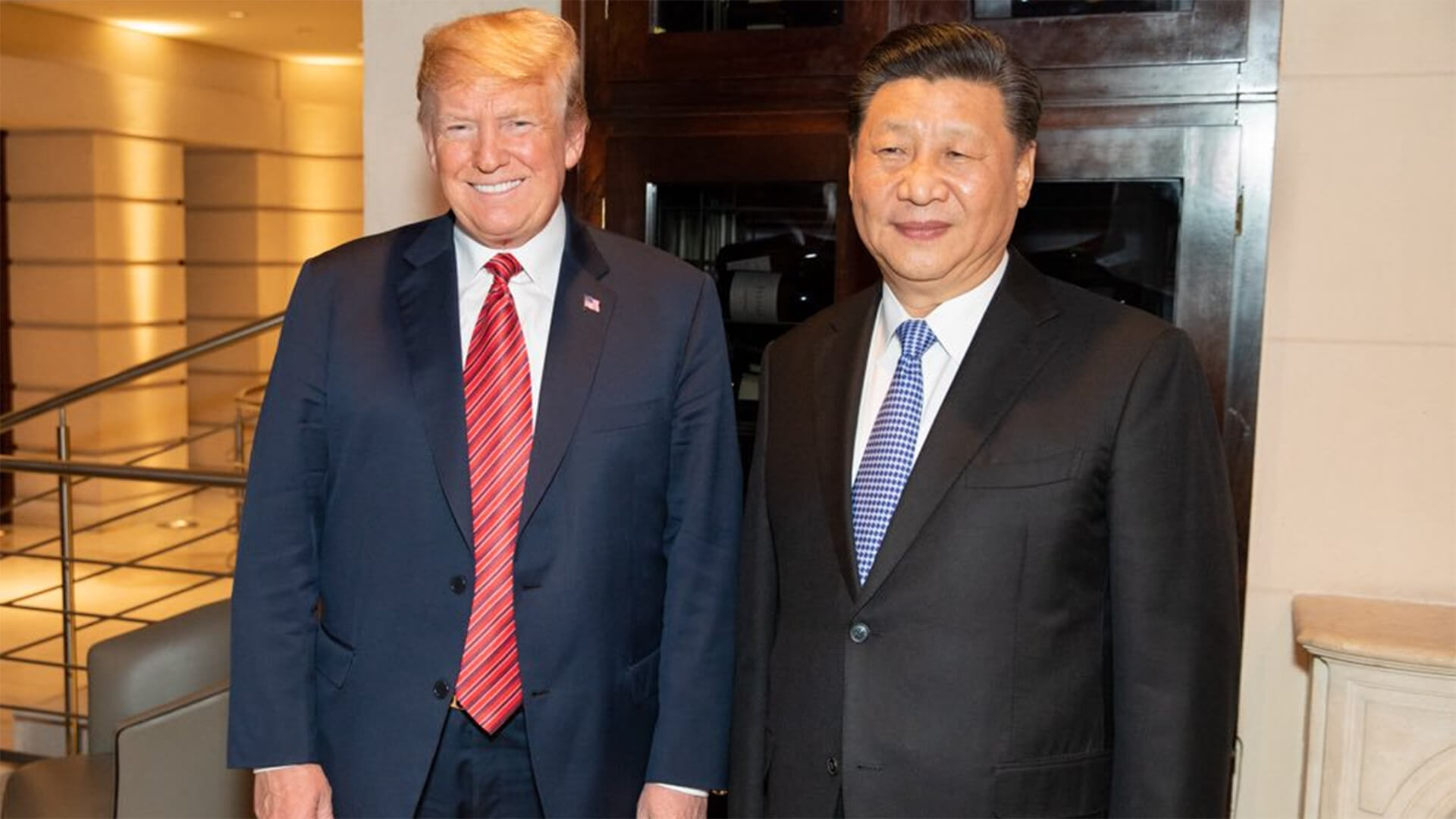Everyone gets mad at me for critiquing the leader that they like, but listen…I’m out here roasting everybody. Whether it’s Obama, Trump, Xi Jinping, or Grandma, nobody is safe. Okay fine, we’ll leave Gram Gram out of it for today.
Each of these three leaders has damaged long-term functionality of their respective governments. Obama was incredibly intelligent, but lacked the managerial skills to achieve bipartisan cooperation. Xi Jinping is paranoid and obsessed with preserving his power, which led him to purging the Chinese system and creating an overly centralized system that is disconnected from reality. Trump has adopted the worst qualities of both of these other leaders and brought them to his second term in office, results are obvious in daily news…
At least the US only has to deal with Trump for four years. The Chinese have no end in sight for their leadership crisis and are rapidly approaching demographic collapse. Hopefully the US can learn something from the chaos that will ensure in China, and avoid a similar fate.
Transcript
Hey all. Peter Zeihan here. Coming to you from Colorado at the Denver, Colorado airport. Today we’re talking about leadership. There are a few things going on. But I want to talk about three of my least favorite, leaders that are on the public stage right now. A lot of people. And all of a sudden. First, to establish my bona fides, I consider myself to be a political independent, which means that I think that I can look at politics in objective manner.
It’s even handed. What that really means is that everyone assumes that I’m partizan for the other side. You know, it’s just my personal cross to bear. But let’s start with somebody who is no longer in power, and that’s Barack Obama. Barack Obama is one of my least favorite leaders of the modern age, largely because of his lack of managerial skills.
Now, it’s not that he’s not intelligent. I would argue that he is the smartest president we’ve had since Jefferson. And he gave a lot of kind of exit interviews in his last year as president, where he demonstrated that he really did grasp how everything works, like why the Israeli-Palestinian conflict really had no meaningful conclusion that could ever be resolved.
Why green tech in its current form actually increases carbon output rather than decreases it? Whether it was economics, politics or strategy, he really did understand how everything fit together. But he really hated people. He hated being in the same room as people. He hated having conversations with people. It was a constitutional law professor. He wanted to lecture from the front.
He wanted that to be the end of it. So we actually thought when he was elected, that just because he was there, that we’d have bipartisan cooperation on everything and everything would be easy. And since he didn’t have meetings with anyone, that just didn’t work out. So of the presidents who served full terms going back to Foundation, no American president met with his cabinet or went to Congress fewer times than Barack Obama.
And so for eight years, we basically didn’t have a president. But that didn’t stop him from thinking that he was the smartest person in the room. So in his first meeting with the Joint Chiefs, he basically told everyone that he could do all of their jobs better than they could. You know, let’s let’s assume that that’s true for a moment.
So, you know, my understanding is the presidency is not a part time gig. So even if you were the best person for every job, you can’t do them all at the same time and do your own. And so he never delegated or sealed himself in the white House, basically built an information wall around him and just sat there for eight years, and he’ll go down in history as one of the worst managers in the worst presidents we’ve ever had.
Next up is chairman Xi of China, who, like all world leaders, is a bit narcissistic, but his issue is power preservation. Whereas Barack Obama always insisted that he was the smartest person in the room and was so confident in his arrogance that he basically just could be in a room alone. He is always concerned about what the next threat happens to be from internal services, because if you look back on the long stretch of Chinese history, lots of coups, lots of assassinations, and he knows that in a ossified political system like the Chinese Communist Party, it’s only a matter of time before somebody else decides to kick him off.
So his policy was to preemptively stop that. So he purged. He started with the local regional governments. He worked with the federal bureaucracy. More recently, he’s taken on academia and the business community in the military. And really, the last time he had a meaningful advisor who would tell him the truth has been 6 or 7 years ago now.
And so he’s been making policy in a box all that time. And federal policy out of China has become more and more erratic and less and less connected to reality. You know, part of this is in the geography of China, it’s a big place with a lot of variety. And the saying is that the emperor is far away.
And so you get China spinning between these two extremes of over centralization, which is definitely what we have now, or when the emperor or the chairman loses control, all of the regions take out power and basically become five terms of not nations to themselves. There’s really no good middle ground. At least there hasn’t been since, Chairman Deng back in the late 70s. Throughout the 80s. into the 90s. Well, sorry. Ding. Lived a long time. Anyway, what this means is that leadership in China is completely broken, completely isolated from the wider world. And the federal bureaucracy in China has seen so many of their messengers shot, in some cases, literally, that they’ve basically not just started to self-censor, but to self guide.
So if you look at the statistics the Chinese system collects, it’s not as robust as you would expect for a country of China’s level of size or sophistication, because if they present a data point to the Chinese premier that he doesn’t like, the Chinese simply stop collecting that statistic. So there’s no longer any information on things like local political biographies, because that would allow people to start climbing the ladder and getting into the system.
Same for college dissertations. Same for death rates. Same for the bond market. It might generate bad information. It’s not that they collect it and sit on it. It’s it. They don’t even collect it anymore. So they can never have that awkward moment with the boss. And then finally you’ve got Donald Trump. Now, normally when a leader loses an election and spend some time out of power, they try to hire some new people who fill in the gaps of their knowledge base, have skill sets that they don’t have, especially built around things that they want to achieve.
They build up a cadre of legislation so that when they get back into power, they can hit the ground running, modify the laws and Congress, and make sure that the vision this time outlasts the president for at least his current term.
That’s not what Donald Trump did. Instead, Donald Trump purged his inner circle of anyone who knew anything about anyone, including his outer circle, including the leadership of a Republican Party. So it’s just a yes man crowd, and a very thin one at that. You see, when he became president the first time around, he really didn’t expect to win.
And so he tapped the Republican Party apparatus quite strongly, as well as the military for his circle. And when they would inform him of things that he didn’t like to hear, he would fire them. That’s why he went through more cabinet secretaries than any American president in history. By a significant margin this time around, he’s made sure that that can’t happen.
He hasn’t brought in anyone who knows anything. So we have a vengeful, incompetent running the FBI. We have a TV host running the Defense Department and so on. What this means is that Trump has achieved in just a few months, what is taking Chairman XI of China almost 13 years to achieve?
And so what he’s done is basically seal himself in the white House. Obama’s style built a hermetic seal around, and more information can’t penetrate Obama’s style. But then he’s also gutted all of the sources of information that leadership would normally rely upon Xi style. In many ways, we’ve gotten the worst of all worlds. About the only thing I can offer as hope here is that really, most of the purging is at the top of the federal bureaucracy and all of the people down below, you know, the 3 million people in the military, in the bureaucracy that do the day to day.
There’s still there. There’s still a cadre that over time can regenerate the leadership. But that’s going to be a 5 to 15 year process. So take this for what it is. We’ve got three world leaders. Two of them are active that are actively destroying the ability of their states to function, not just during their administrations, but long term.
Now, in the case of the United States, there’s a use by day here. Trump will be gone one way or another within four years. Who knows what’s going to happen next. But in China, who even before the trade war, their demographic situation was so atrocious, they probably only had about eight years left. And now they have to do it without a functional government.
So Xi will be the last Chinese leader, and he will ride this system into the ground, and he will destroy the People’s Republic of China. And hopefully here in the United States on the other side of the Pacific. We’ll look at how that goes down and learn a few things about what to do and what not to do with your government.








